Classé Audio CP-800 Preamp
|
|
|
Preamp Zeitgeist |
|
|
|
April, 2012 |
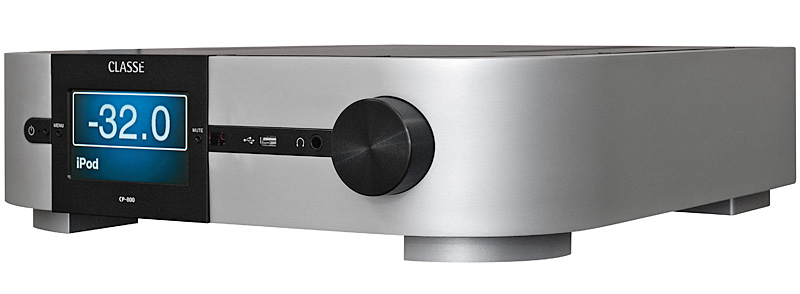
Worth the Wait
It was about a year ago that I spoke to Dave Nauber, President of Classé Audio about getting their $14,000 CA-M600 mono amps and $5,000 CP-800 preamp in for a review. He said that it may take an extra month or two before the preamp would be ready but that I could start with the amps and just hold on to them until the preamp arrived. Well as months and months went by, I started feeling a bit guilty about still having the amps in my system far longer than I needed while I was waiting for the preamp to arrive. Finally in September, I went ahead and submitted the CA-M600 review. To my surprise Nauber insisted that I continue to use the amps because the preamp would soon be ready to ship and he wanted me to review the pieces together. Okay Mr. Nauber, you’re the doctor. Besides, it’s not like I wasn’t enjoying the Hell out of them. Goodness knows my Escalante Fremonts loved them. Not many amps can control the dual 12” woofers that the Fremonts have.
Finally in December, the CP-800 arrived. I was so excited that for the first couple of days I didn’t even connect it to my reference system. I wanted to wait until the unit had a chance to reach room temperature. It had been a particularly cold week when it arrived and I didn’t want to risk any damage to it. So I just took it out of the box and sat it on my Adona equipment rack where it looked stunning. I had read a lot about the unit on the web, so to say that I had high expectations for the CP-800’s performance would be a gross understatement. Hopefully, my patience and optimism would be rewarded.
What’s New?
Despite the fact that the CP-800 is built in the same chassis as all other previous Delta Series preamps, at first glance, you become immediately aware that this is a completely different animal. The first thing you notice is a ¼” headphone jack. I’ll admit that I didn’t quite understand the recent industry focus on headphones. I know that with the growth in popularity iPods, iPads, iPhones and all other portable devices that a good pair of headphones is essential. But I didn’t get why headphone jacks started popping up on multi-kilobuck high-end components. Frankly, I’ve always thought that if you own an audio system with a pair of high-end speakers, the last thing you’d want to do is listen to it through headphones. Thankfully, the folks at Classé knew better. That’s why this headphone output offers the same quality of analog output as the main output channels. What I had failed to realize is just how far the quality of headphones have come. I got a pair of B&W P5 headphones for Christmas and used them for the first time through the CP-800. It was a revelation to say the least.
The next thing you notice is a USB input that allows you to connect Apple’s devices (iPad™, iPod® and iPhone®). This input accepts digital audio from these devices but can also be used to charge them. That’s thoughtful engineering and a nice little design bonus.
Finally, when you hit the “MENU” button, you can see that the CP-800 has tone controls! But these are not your father’s tone controls, no. Classé has actually come up with a slick method for adjusting the frequencies to compensate for poor room acoustics and mediocre recordings (more on this later).

The rear panel is where you really see how things have changed. There is a bank of five analog inputs (3 RCA and 2 XLR), nine digital inputs (USB, AES/EBU, 3 coaxial, 4 optical), and four set of RCA and XLR analog outputs (MAIN, AUX1, AUX2, and SUB output). The CP-800 is designed to allow you to totally integrate your audio, video and computer system. I used it to play my analog rig, a universal disc player and stream movies and music from the iTunes account on my Gateway PC via Apple TV.
The Review System
The system that the CP-800 would be used in consisted of Apple TV, Oppo Digital DV-980H Universal Disc Player (as transport) connected to the CP-800’s coaxial DAC input, a George Warren Precision Sound turntable, Clearaudio Smartphono phonostage, and Benz Micro Ace cartridge as sources. Amplification would come from the Classé CA-M600 and Jones Audio PAM-300 Series II mono amps, and Vitus Audio RI-100 integrated amp. Loudspeakers used were the My Audio Design 1920 and Escalante Fremont and of course the B&W P5 headphones. I also used a modified APC power conditioner and Acoustic Revive RTP-2 Ultimate Power Supply Box. Cabling was all Hemingway Audio and Entreq. I would characterize the sound of this system as very neutral and very powerful. When a change in component is made, it is usually easily recognizable.
Listening
I started my critical listening playing CDs using the Oppo as a transport and running a digital cable into the CP-800’s DAC. The unit uses a pair of Wolfson WM8741DACs which produce differential outputs for both channels. They can operate at either 176.4 or 192 kHz, depending on whether the input is a multiple of 44.1 or 48 kHz. I used the DAC’s coaxial input for most of my disc listening.
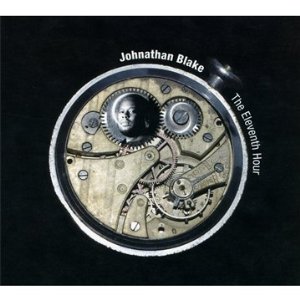 The first disc I heard was the stunning debut disc from jazz drummer Jonathan Blake called The Eleventh Hour[Sunnyside Records]. This recording plays right into the Classé system’s strengths: dynamics and power. For its part the CP-800 lays out the soundstage magnificently. The most obvious example of this is the title track which starts with a briefly recessed (sounding) drum solo to segue to a really cool bass line and fully fleshed out drums. Through a lesser design this beginning would have sounded like just a bad and uninteresting recording, but the CP-800 gave it enough life to draw me in. Blake is backed by a tremendous horn section and sprinkles in a neat little layer of harmonica from Gregoire Maret and piano from another great young musician named Robert Glasper. Track ten, “Canvas”, is my favorite tune on this disc. It begins with a small child singing, ” I love to singa, about the moona and the juna and the springa, I love to singa…” If you’re a middle-aged person like me, you’ll remember that little tune from a cartoon decades ago in which a young owl wants to sing jazz much to the chagrin of his father. It’s a cute way to start the track which is a warm and sweet sounding tune that again features that great horn section and Maret on harmonica. But Blake’s drum work is the song’s heart and the CP-800 renders it with all of its dynamics intact. This recording is relayed within a lively and lifelike soundstage. The instruments were played with realistic size and character, and every song was a joy to listen to.
The first disc I heard was the stunning debut disc from jazz drummer Jonathan Blake called The Eleventh Hour[Sunnyside Records]. This recording plays right into the Classé system’s strengths: dynamics and power. For its part the CP-800 lays out the soundstage magnificently. The most obvious example of this is the title track which starts with a briefly recessed (sounding) drum solo to segue to a really cool bass line and fully fleshed out drums. Through a lesser design this beginning would have sounded like just a bad and uninteresting recording, but the CP-800 gave it enough life to draw me in. Blake is backed by a tremendous horn section and sprinkles in a neat little layer of harmonica from Gregoire Maret and piano from another great young musician named Robert Glasper. Track ten, “Canvas”, is my favorite tune on this disc. It begins with a small child singing, ” I love to singa, about the moona and the juna and the springa, I love to singa…” If you’re a middle-aged person like me, you’ll remember that little tune from a cartoon decades ago in which a young owl wants to sing jazz much to the chagrin of his father. It’s a cute way to start the track which is a warm and sweet sounding tune that again features that great horn section and Maret on harmonica. But Blake’s drum work is the song’s heart and the CP-800 renders it with all of its dynamics intact. This recording is relayed within a lively and lifelike soundstage. The instruments were played with realistic size and character, and every song was a joy to listen to.
 The next disc was from yet another relative newcomer, vocalist Gretchen Parlato. Her latest recording, Lost and Found [Obliq Sound] has been life changing for me and I don’t mind saying that I am simply in love with this woman. Don’t worry, my girlfriend NEVER reads any of my articles, so I’m not concerned about her finding out about this.
The next disc was from yet another relative newcomer, vocalist Gretchen Parlato. Her latest recording, Lost and Found [Obliq Sound] has been life changing for me and I don’t mind saying that I am simply in love with this woman. Don’t worry, my girlfriend NEVER reads any of my articles, so I’m not concerned about her finding out about this.
Let’s face it, it’s easy for most high-quality stereo systems to get the power and finesse thing right, but a really great system will have to also handle the delicacies with equal authority. Gretchen Parlato’s voice is the essence of sweetness, barely going above an orgasmic murmur. The opening track on this disc a jaw-dropping cover of the Simply Red hit, “Holding Back the Years.” This track is COOL!! The rhythm is provided by the soft tapping of the snare’s rim, a kick drum and some excellent piano playing by Taylor Eigsti. The CP-800 portrays this recording in a manner that still makes it what we in Chi-Town call a “stepper’s cut.” It is smooth, while still also being dynamic and rhythmic. It’s just a really cool cut to hear and again, through a lesser system might come off as a bit flat and uninteresting. Thankfully the Classé combo treats it right. And for you fans of really dynamic recordings tracks like Winter Wind and How We Love are loaded with enough percussions and keys to satisfy. And boy does this Classé system have the goods. Slam, detail, air and spacious soundstaging are among the words that stood out in my notes while evaluating this system.
Tone Control
As I mentioned earlier, the CP-800 has a unique form of tone control. Simply touch the Menu button on the faceplate or remote and you’ll see all the menu buttons: System Setup, Configurations, Tone Control, Mono, Balance and Status. The tone control can be used to simultaneously boost or drop the treble or bass by as much as 6.0 dB.
While the Tone Control screen is displayed, pressing the volume up button on the remote (or turning the volume knob clockwise) will increase the high frequencies and decrease the low frequencies in 0.5 dB increments. Press the volume down button or turn the knob counter clockwise will get the opposite effect. You also have the option to adjust only the bass or treble if you don’t desire this “tilting” of the frequencies.
There is a scad more flexibility to this unit than there is time to go into here including the renaming of all source inputs, controlling the screen’s brightness, and mapping volume levels to individual inputs. All of these functions and many more can be easily operated from the touch screen display or from the gorgeous Classé remote.
USB
Anyone who was at the 2012 CES knows just how dominant digital source components with USB connections were. I’m not sure that I visited one room that didn’t have such a setup. Classé is staying a step ahead of the game by not just having a built-in DAC with the CP-800 but by also including a USB input on the very front of its faceplate. I was able to connect my iPhone 4S directly into the unit, select the front USB input (USB F) from the touch screen display and in a matter of seconds was enjoying all the music from my iPhone without having to touch any rear panel connections.
 My nephew Maurice visited me one weekend and brought over his Mac Book. So I had him to connect it to the same front USB input and launch his iTunes library. Sadly, Maurice’s idea of music is The Best of DeBarge and a bunch of Rap music with “Explicit” lyrics. In other words there was nothing I could tolerate listening to. So I bribed him into purchasing jazz pianist Robert Glasper’s wonderful new recording Black Radio[Blue Note] from iTunes just so that I could hear it through the CP-800. I have never spent a better $9.99 in my life. This album is excellent from start to finish and features a strong blend of jazz, R&B and hip-hop, featuring artist such as Erykah Badu, Ledisi, and Lela Hathaway. For pure soul vocal power, you gotta hear Ledisi on track five, “Gonna Be Alright.” [I enjoy Lela’s version of Sade’s “Cherish the Day” the most – Clement] The CP-800 gives air and presence to her voice and lets it rise above the slightly over-produced arrangement. Here is yet another case of a good recording being made great by deft electronics. Like a lot of neo soul and R&B music, the bass lines tend to dominate. But the CP-800 seems to take this music to the limits of bass excess without going over it. The result is music that is delicate when it needs to be yet always effortlessly powerful.
My nephew Maurice visited me one weekend and brought over his Mac Book. So I had him to connect it to the same front USB input and launch his iTunes library. Sadly, Maurice’s idea of music is The Best of DeBarge and a bunch of Rap music with “Explicit” lyrics. In other words there was nothing I could tolerate listening to. So I bribed him into purchasing jazz pianist Robert Glasper’s wonderful new recording Black Radio[Blue Note] from iTunes just so that I could hear it through the CP-800. I have never spent a better $9.99 in my life. This album is excellent from start to finish and features a strong blend of jazz, R&B and hip-hop, featuring artist such as Erykah Badu, Ledisi, and Lela Hathaway. For pure soul vocal power, you gotta hear Ledisi on track five, “Gonna Be Alright.” [I enjoy Lela’s version of Sade’s “Cherish the Day” the most – Clement] The CP-800 gives air and presence to her voice and lets it rise above the slightly over-produced arrangement. Here is yet another case of a good recording being made great by deft electronics. Like a lot of neo soul and R&B music, the bass lines tend to dominate. But the CP-800 seems to take this music to the limits of bass excess without going over it. The result is music that is delicate when it needs to be yet always effortlessly powerful.
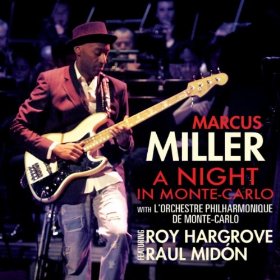 The disc that I probably spent the most time listening to was Marcus Miller’s A Night In Monte Carlo [Concord Records]. This spectacular live recording features bassist Miller supported by trumpeter Roy Hargrove, Raul Midon on guitar and the Monte-Carlo Philharmonic Orchestra. “Blast” is the opening track and it features an electrifying performance by Miller, popping and thumping the strings of his massive bass. The CP-800 fleshes this performance out and you can hear Miller’s fingers flying from fret to fret. All subtleties are there from Miller voicing direction to his bandmates at the back of the soundstage to the expansiveness of the venue. Miller’s cover of Miles Davis’ “So What” features also features a great solo by the bassist that benefits from the Classé system’s speed and detail. This is an awesome disc and what a great system!
The disc that I probably spent the most time listening to was Marcus Miller’s A Night In Monte Carlo [Concord Records]. This spectacular live recording features bassist Miller supported by trumpeter Roy Hargrove, Raul Midon on guitar and the Monte-Carlo Philharmonic Orchestra. “Blast” is the opening track and it features an electrifying performance by Miller, popping and thumping the strings of his massive bass. The CP-800 fleshes this performance out and you can hear Miller’s fingers flying from fret to fret. All subtleties are there from Miller voicing direction to his bandmates at the back of the soundstage to the expansiveness of the venue. Miller’s cover of Miles Davis’ “So What” features also features a great solo by the bassist that benefits from the Classé system’s speed and detail. This is an awesome disc and what a great system!
Conclusion
As I said in my review of the CA-M600 mono amps last year, Classé continues to produce equipment that is beautifully built, thoughtfully designed and sonically peerless. The CP-800 is definitely from this same mold but with a definite nod towards the future. This may well be the preamp Zeitgeist for this period in audiophilia. It ties together past, present and future audio/video needs in a gorgeously put together and relatively affordable package. Paired with the CA-M600s, and for less than $20k, there may be nothing close for some time to come. Enthusiastically recommended!

![]()
Specifications:
Frequency response 8 Hz – 200 kHz < 1 dB, stereo analog bypass
8 Hz – 20 kHz < 0.5 dB, all other sources
Channel Matching better than 0.05 dB (left to right)
Distortion (THD+noise) .0005%, digital source/bypassed analog source .004%, processed analog source
Maximum input level 2 Vrms (DSP), 4.5 Vrms (bypass)
(single-ended)
Maximum input level 4 Vrms (DSP), 9 Vrms (bypass)
(balanced)
Maximum output level 9 Vrms
(single-ended)
Maximum output level 18 Vrms
(balanced)
Gain Range -100 dB to +14 dB
Input impedance 50 kΩ (balanced)
100 kΩ (single-ended)
Output impedance 300 Ω (balanced),
(main output) 100 Ω (single-ended)
Signal-to-noise ratio 104 dB, bypassed analog source
(ref. Bal. 4 Vrms input, 101 dB, processed analog source
unweighted) 105 dB, digital source (ref. full-scale
input, unweighted)
Channel separation better than 100 dB
Crosstalk better than -130 dB @ 1 kHz
(any input to any output)
Standby power consumption
Rated power 31 W
consumption
Mains Voltage 90-264 V, 50/60 Hz
Overall dimensions Width: 17.5” (445 mm)
Depth: 17.5” (445 mm)
(excluding connectors)
Height: 4.78” (121 mm)
Net weight 23 lbs (10.43 kg)
Shipping weight 33 lbs (15 kg)
Made for
iPod touch (4th generation) iPod nano (6th generation)
iPod touch (3rd generation) iPod nano (5th generation)
iPod touch (2nd generation) iPod nano (4th generation)
iPod touch (1st generation) iPod nano (3rd generation)
iPod classic iPod nano (2nd generation)
Made for
iPhone 4 iPhone 3G
iPhone 3GS iPhone
Made for iPad
Price: $5,000.00
Address:
Classé Audio, Inc.
5070 François Cusson
Lachine, Québec
H8T 1B3, Canada
Phone: 1-514-636-6384
FAX: 1-514- 636-1428
Website: www.classeaudio.com
E-mail Sales: sales@Classéaudio.com
![]()
Don’t forget to bookmark us! (CTRL-SHFT-D)
Stereo Times Masthead
Publisher/Founder
Clement Perry
Editor
Dave Thomas
Senior Editors
Frank Alles, Mike Girardi, Russell Lichter, Terry London, Moreno Mitchell, Paul Szabady, Bill Wells, Mike Wright, and Stephen Yan,
Current Contributors
David Abramson, Tim Barrall, Dave Allison, Ron Cook, Lewis Dardick, John Hoffman, Dan Secula, Don Shaulis, Greg Simmons, Eric Teh, Greg Voth, Richard Willie, Ed Van Winkle, Rob Dockery, Richard Doron, and Daveed Turek
Site Management Clement Perry
Ad Designer: Martin Perry


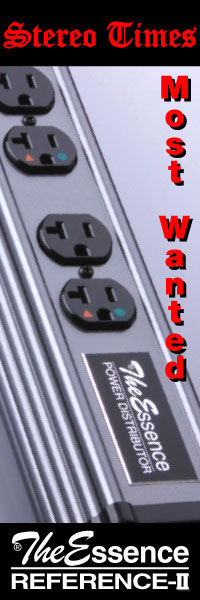
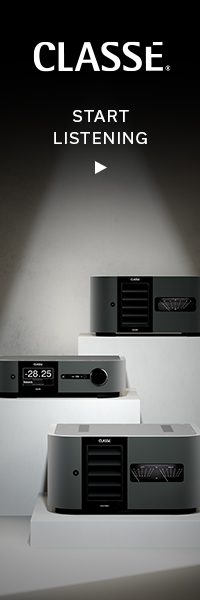
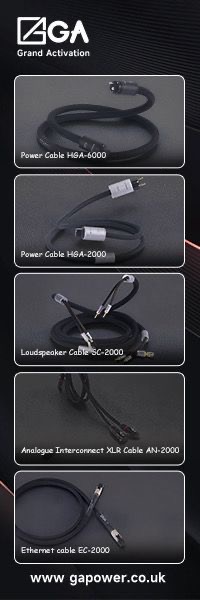
Be the first to comment on: Classé Audio CP-800 Preamp